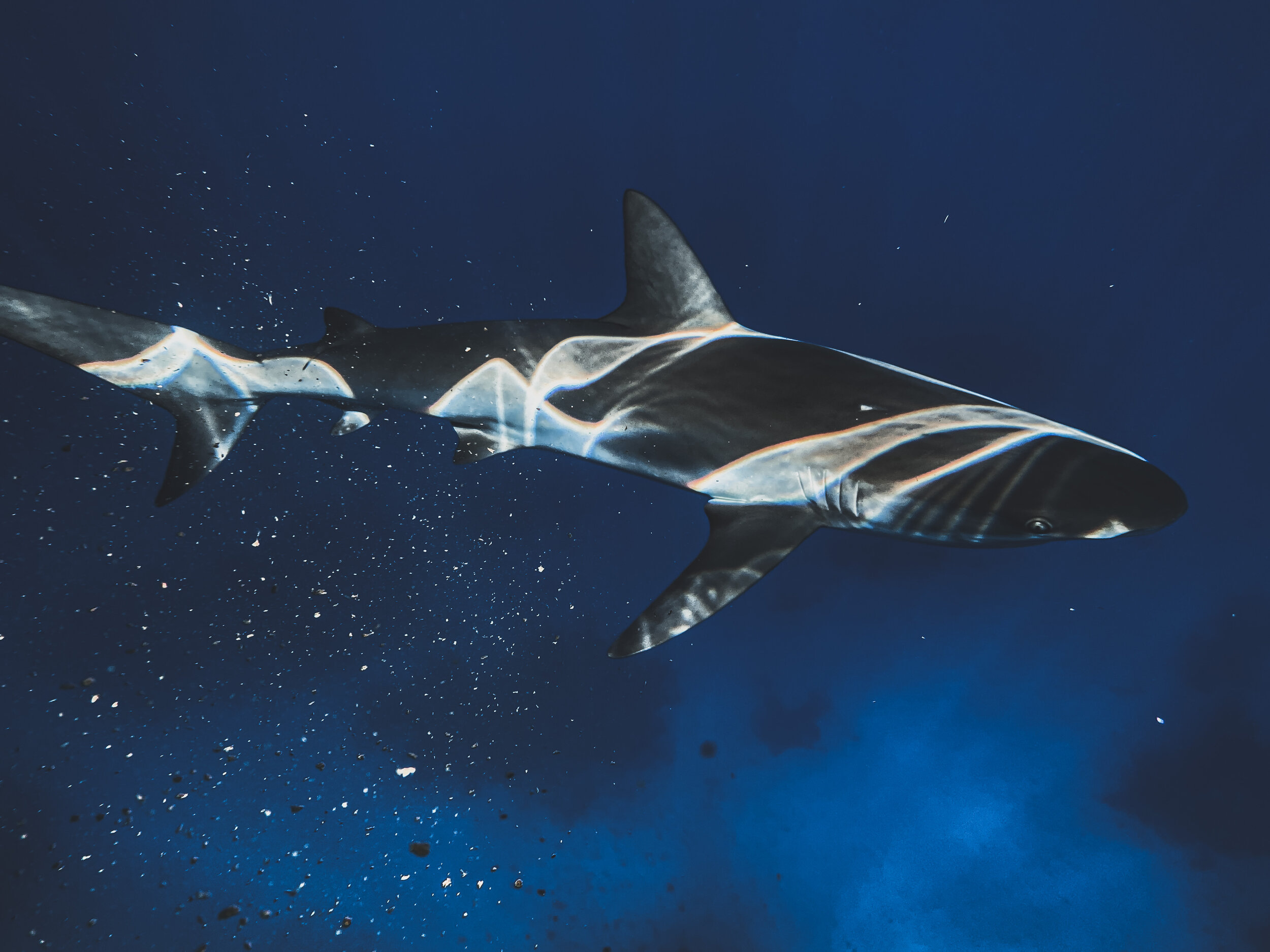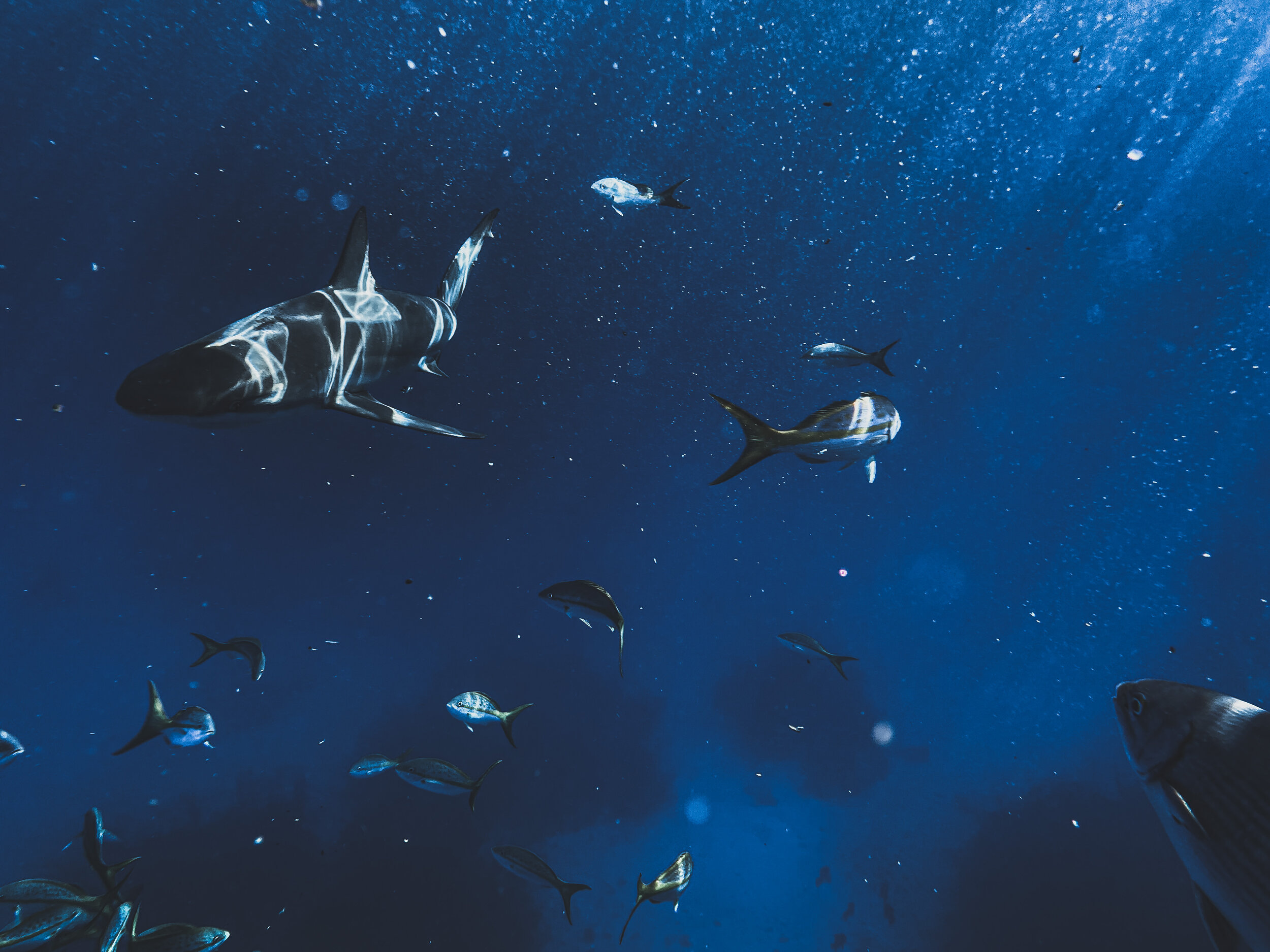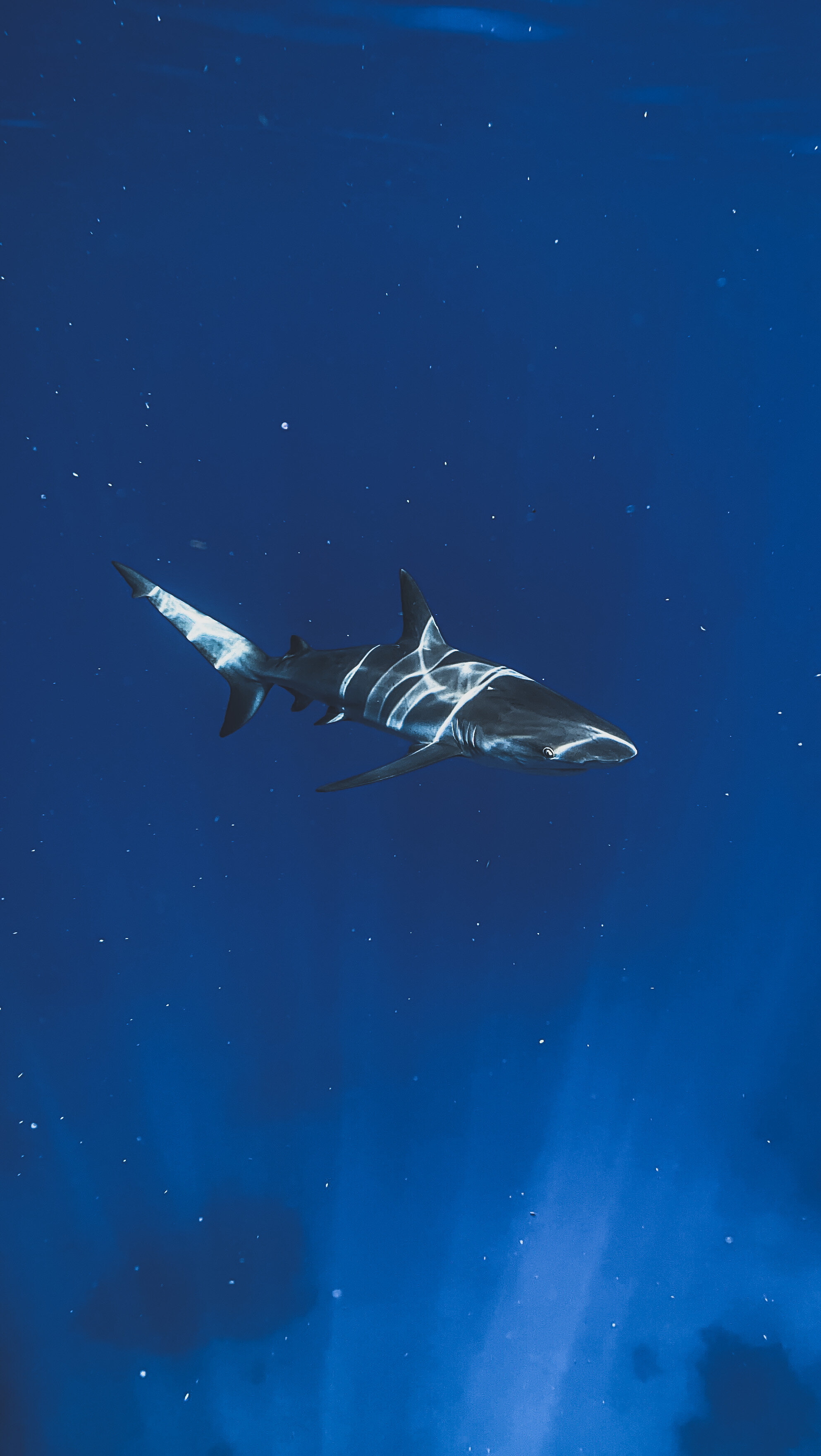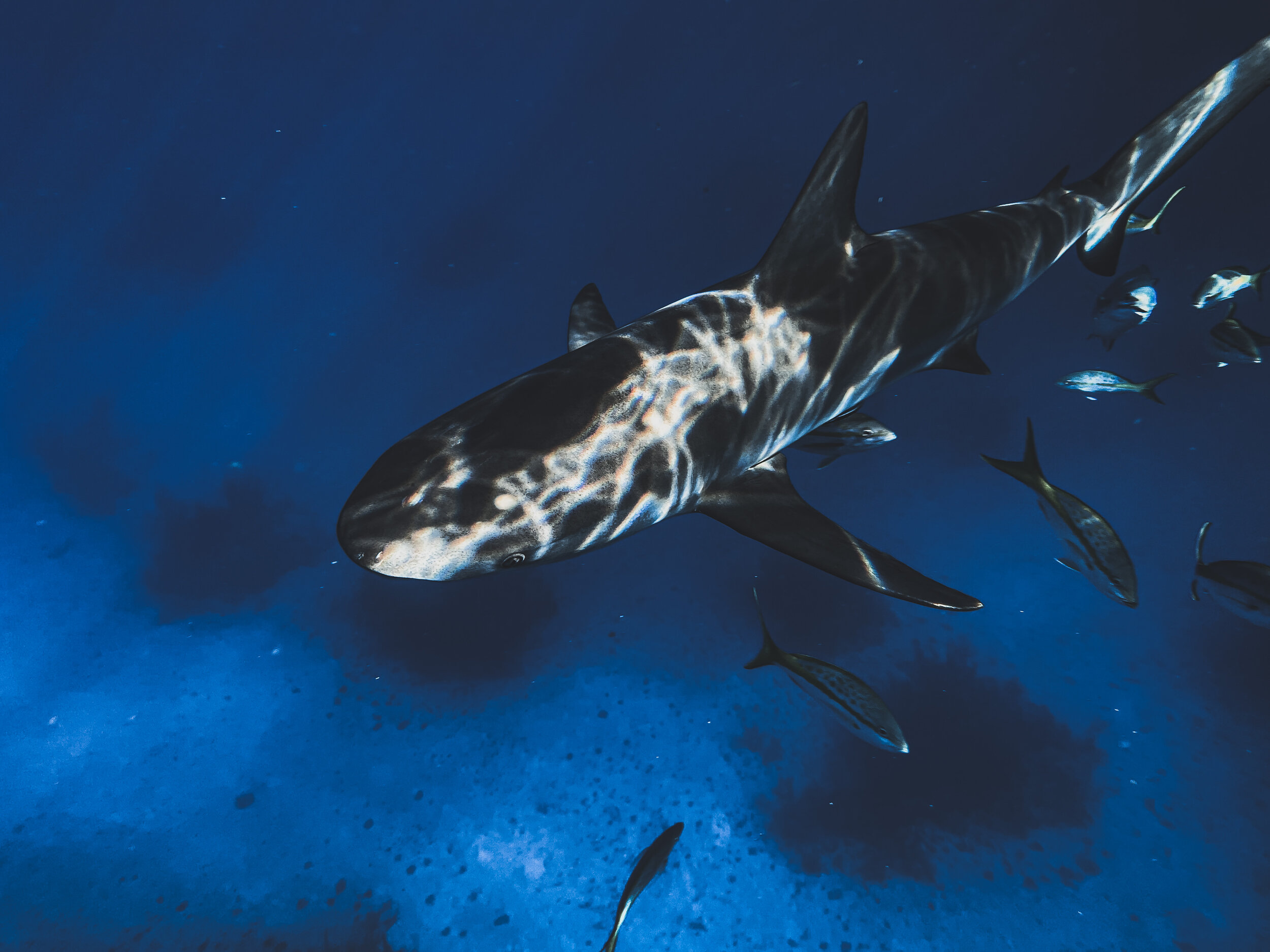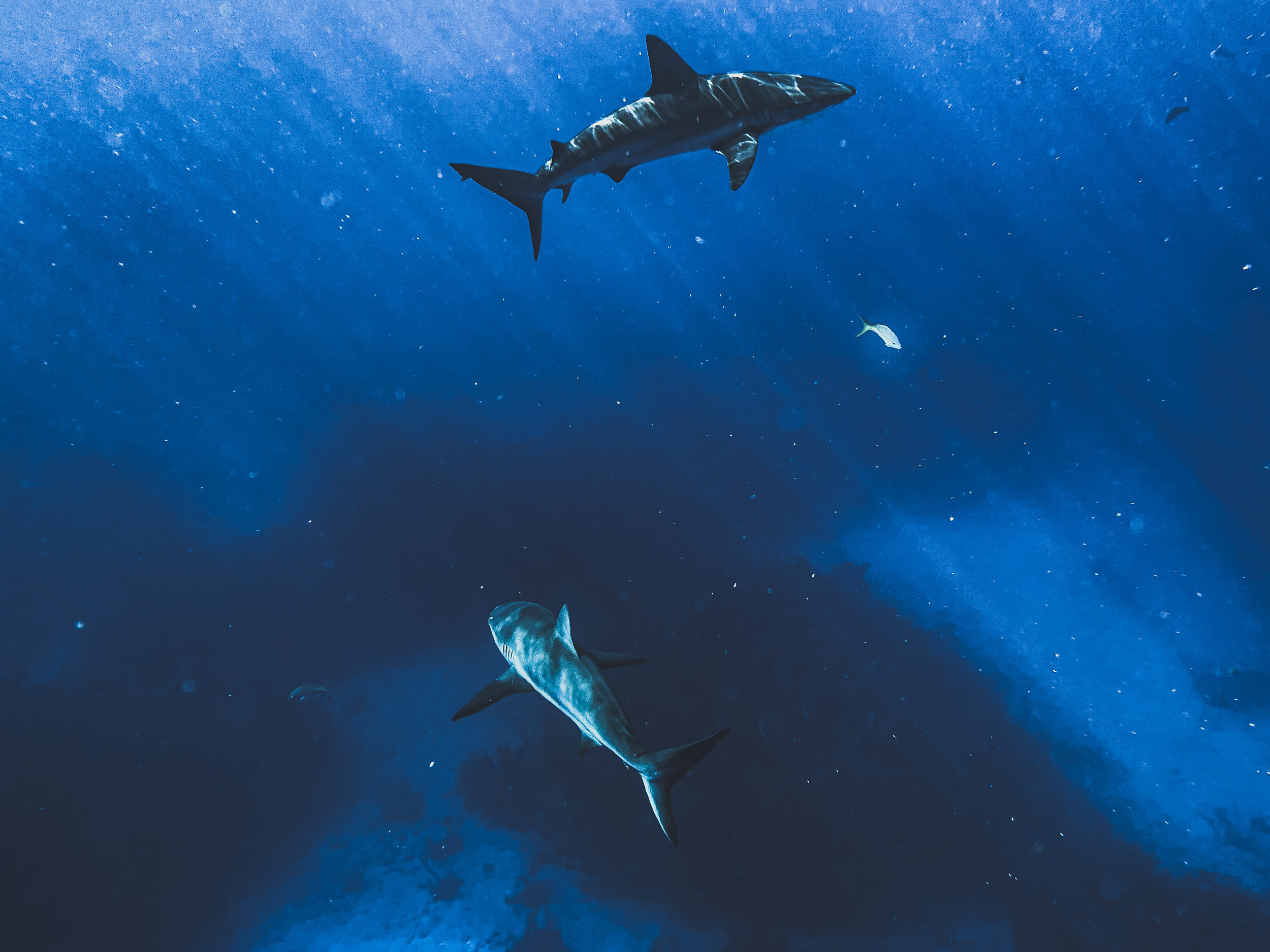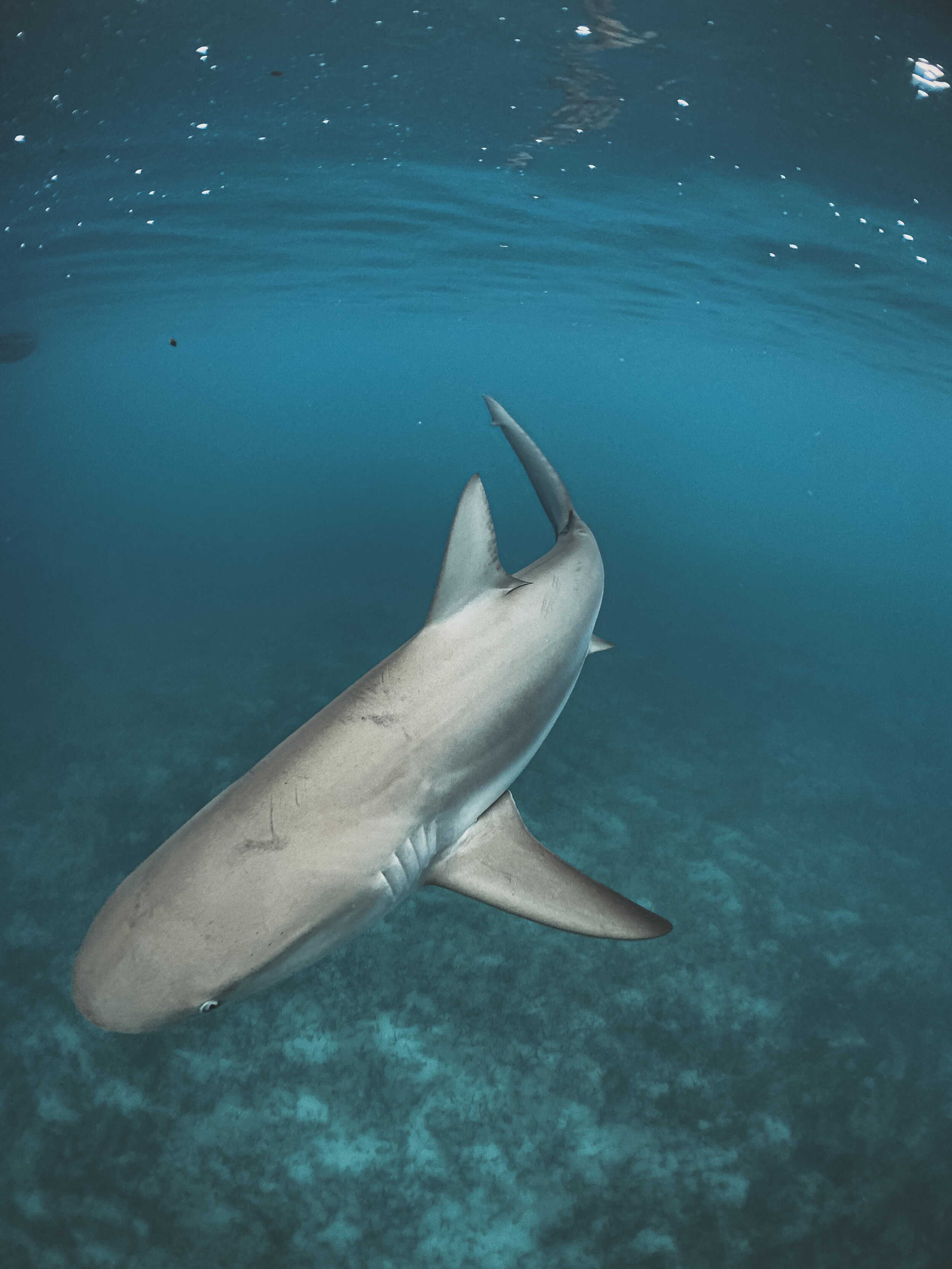When I first started diving, I never thought I would ever jump in the water on purpose to swim with sharks. A few year later, here I am observing and diving with sharks in the middle of the ocean. I discovered that they are not only fascinating creatures, their symbolism also really resonated with me. Sharks represent personal power and the inner strength necessary to get rid of negativity. They are complete masters of their emotions, have a great sense of intuition and when they want something, nothing can stand in their way. When Shark enters your life it portends a time of fearlessly facing those things or people who hold you back. Shark does what it wants, when it wants, and how it wants. Shark has a primal knowing that ‘’we were born to manifest the glory that is within us.’’
About The Caribbean Reef Shark
Most of the sharks we encounter in The Bahamas are Caribbean Reef Sharks. Reef sharks are the most abundant shark species in the Caribbean but there is no need to fear the sharks, they are peaceful swimming sharks and not aggressive.
The Caribbean reef shark is commonly found close to the bottom of shallow waters. As its name indicates, this shark is found in reefs, less than 30m deep. It’s native to the Western Atlantic in areas like Florida and southern Brazil as well as the the northern Gulf of Mexico and the Antilles.
Biology and Behaviour
The Caribbean reef shark is a large grey shark with a short blunt snout. The biggest Caribbean reef shark ever reported was 3 m, but despite its size it mostly feeds on small bony fish.
This species is a shallow water shark can dive up to 65 m, but it’s usually found in depths of 1 to 35m.
In spite of its reputation as a sleeping shark, the relatively large reef shark, that grows to up to ten feet (three meters) in length, is a top predator in the Caribbean reef ecosystem. Only juveniles are sometimes preyed upon by larger fishes, for instance by tiger sharks. The wealth of the reef provides the reef shark with ample food, such as bony fish, invertebrates, and sometimes even rays, such as stingrays or eagle rays. On the reefs around our islands, reefs sharks are usually sighted during scuba diving, after being attracted by the bubbles of divers, but they always keep their distance.
Reproduction
Caribbean reef shark give birth to live young. The size of the young at birth is about 73 cm or less in length. The Caribbean reef shark reaches sexual maturity at a range of 152 to 168 cm in length.
Conservation
Although their numbers have declined severely over the past decades. The status of its populations is currently assessed as near threatened, but experts say it is expected that the species will meet the criteria for a vulnerable classification soon. The species is caught as bycatch by commercial and artisanal fisheries. They also reproduce very slowly, which means it’s difficult for them to rebound if overfished.



